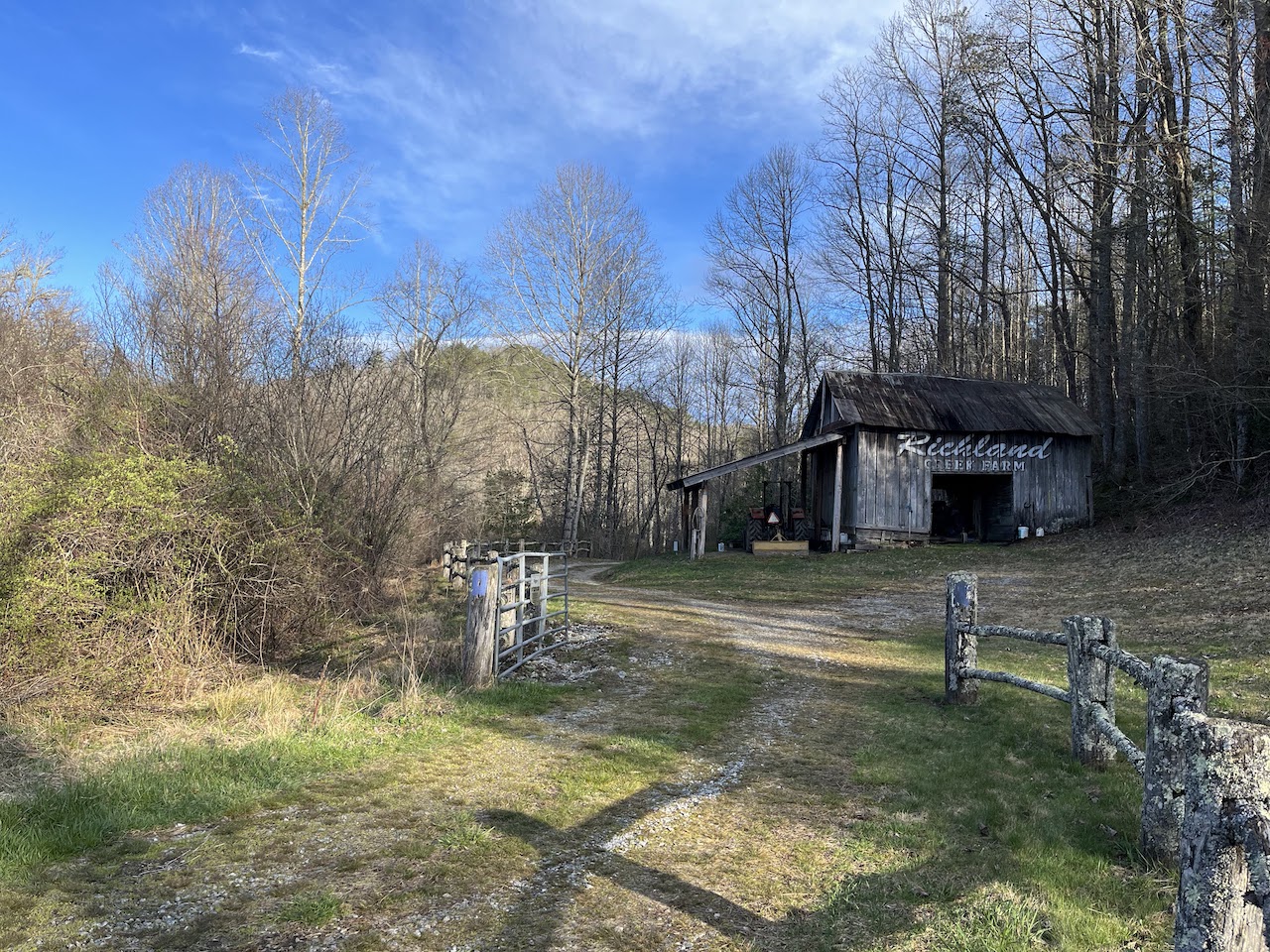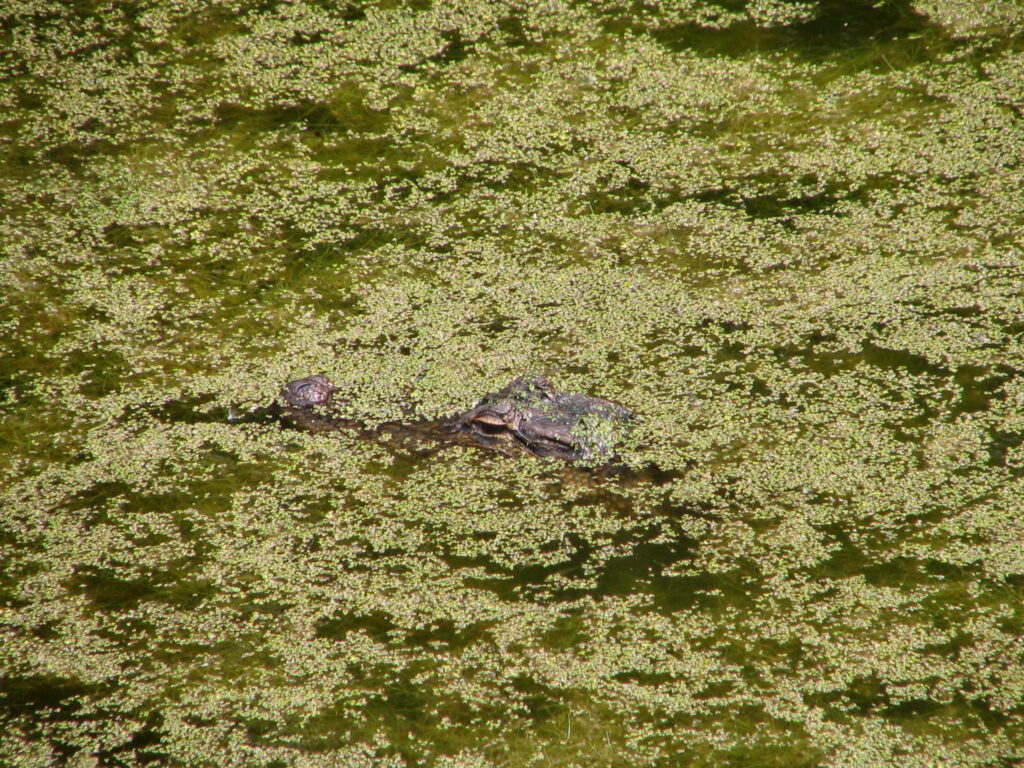From hemlocks to hellbenders, Richland Trust’s board and staff are committed to protecting the natural habitats and the diverse animal and plant species of the Appalachian Mountains in North Carolina.
Twenty-five years ago, North American Land Trust (NALT) founded Richland Trust as a 509(a)(3) supporting charitable organization dedicated to the stewardship of conservation areas in Southwestern North Carolina. Today, Richland Trust owns nearly 300 acres of Southern Appalachian forests, hemlock forests, and mountain bogs. The conservation areas are a few miles from Lake Toxaway in Transylvania County.
“It’s a special place for a lot of reasons,” says NALT’s Southeastern Program Manager Will Gandy, a member of the Richland Trust Board of Directors.
Bog Turtle
The region is home to North America’s smallest turtle, the endangered bog turtle, which survives in mountain bogs. The bog turtle is listed as threatened under the federal Endangered Species Act of 1997. It grows no more than 4.5 inches long and can live up to 60 years in the wild. Richland Trust protects two Southern Appalachian bogs in its conservation areas that could support the tiny turtle.
Brad Kimzey, the trust’s Vice President of Operations, said these areas are vital habitat – not just for bog turtles – but for all sorts of plants and animals.
“It is important to protect these natural lands for the ecological diversity,” Kimzey said. “Ecologists will tell you that this diversity is very important.”
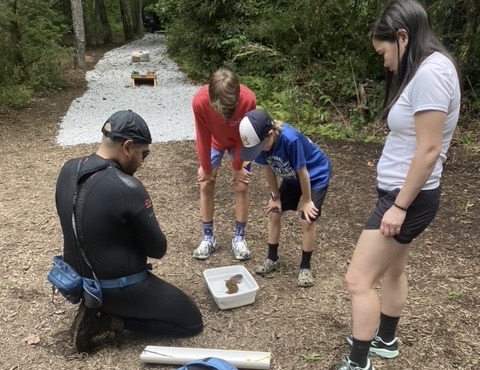
Hellbenders
A Richland Trust conservation area is home to North America’s largest salamanders, the Eastern Hellbender. The southern border Richland Creek Farm runs about a mile along the banks of the West Fork of the French Broad River, a pristine waterway known for its trout fishing.
In 2022, researchers associated with Clemson University conducted studies in the conservation area’s waterways on the behaviors of hellbenders and their primary prey, crayfish.
The researchers documented 16 hellbenders at the Richland conservation area.
Researchers are studying how the presence of hellbenders influences the ecosystem-processing capabilities of crayfish. Preliminary findings show crayfish in high density areas of hellbenders shred and consume more leaf litter than researchers expected.
“The project went smoothly, and it ended up being the perfect site for this experiment,” Researcher Daniel Knapp said in a note thanking Richland Trust for its support of the project.
Hemlock Forests
In March, Richland Trust teamed with the Hemlock Restoration Initiative to protect the hemlocks on the local land trust’s conservation areas. A group of Richland Trust board members, community residents, and forestry technicians gathered on a sunny Saturday to protect the hemlocks from woolly adelgid, an invasive insect species that has decimated hemlocks forests in the Eastern United States.
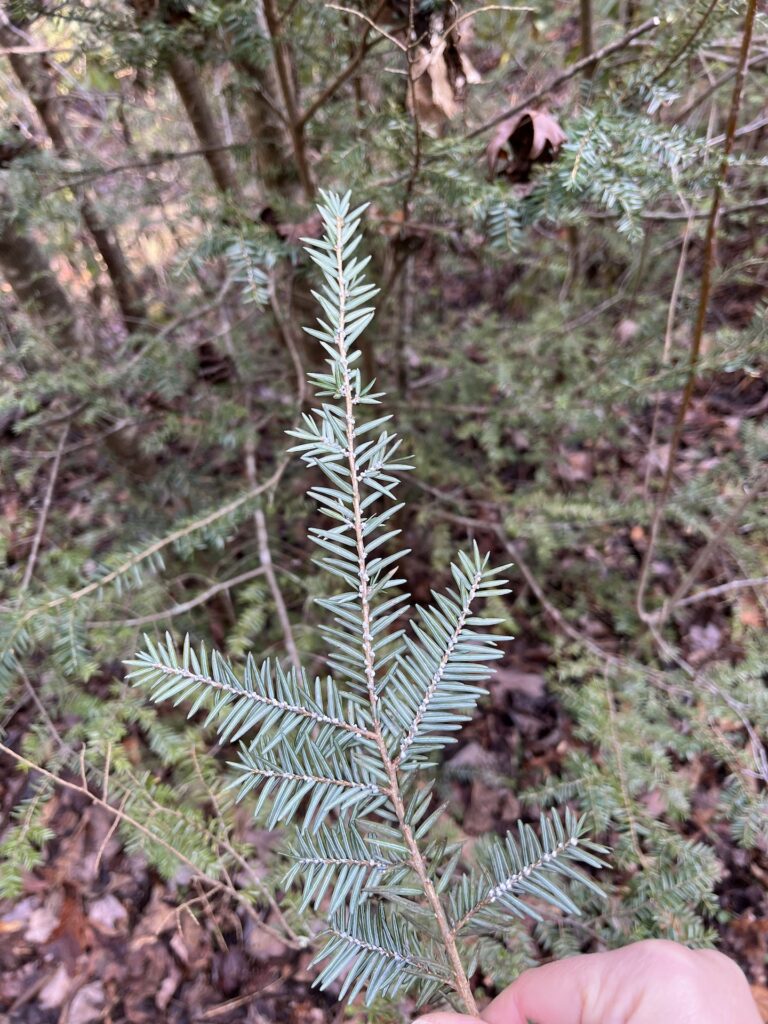
Margo Wallston, Director of the Hemlock Restoration Initiative, said the program’s success depends on its partnership with diverse landowners and managers on public and private lands.
“We are pleased to add Richland Trust and North American Land Trust to the community of conservation partners on whose preserves we have been able to establish hemlock conservation areas for long-term management and restoration of hemlock-driven ecosystems,” Wallston said.
The group split into six teams, each with an experienced professional, and treated 193 hemlocks in the conservation areas. Most of the trees were large, mature trees, including one that was 45-inches in diameter.
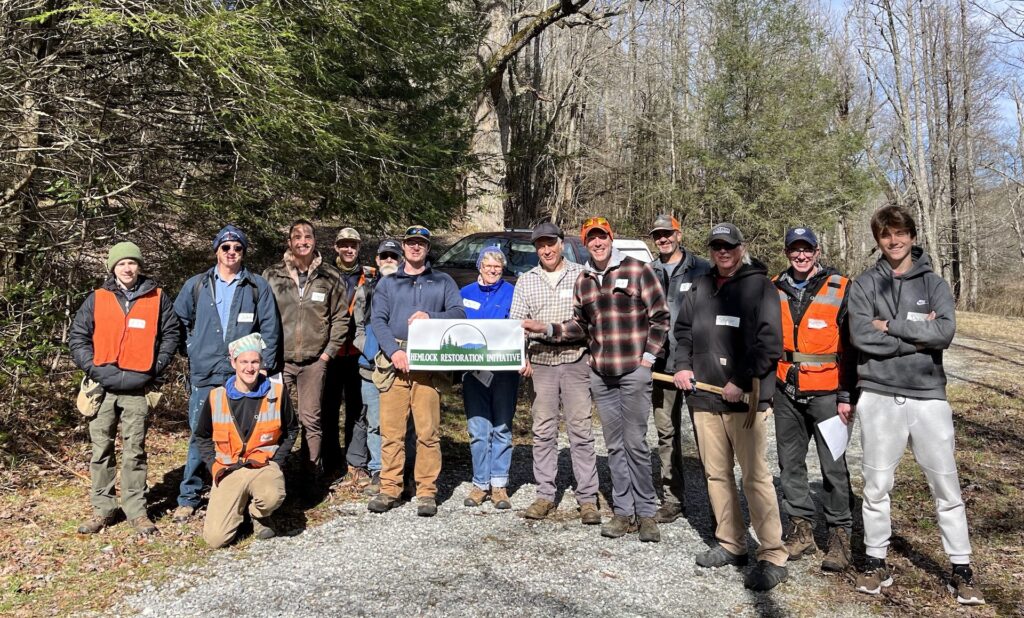
“We appreciate the time, energy, and effort the volunteers and community members contributed to making the March workday a resounding accomplishment, with nearly 200 trees protected from woolly adelgid for years to come,” Wallston said.
Luckily, the trees had been treated over the years thanks to the generosity of a local resident. Because of that stewardship, Wallston and Kimzey said the hemlocks in the Richland Trust conservation areas are still in good shape.
“Hopefully, they will live long, healthy lives unlike the other hemlocks in the area dealing with the deadly effects of woolly adelgid,” Kimzey said.

